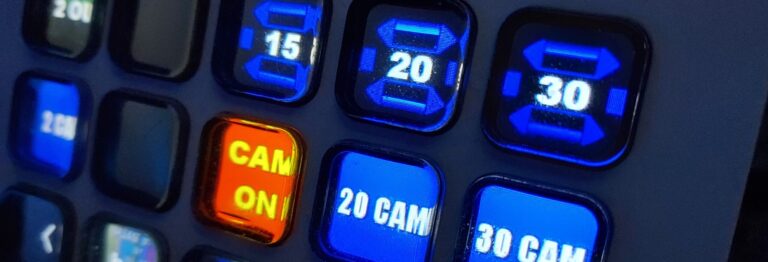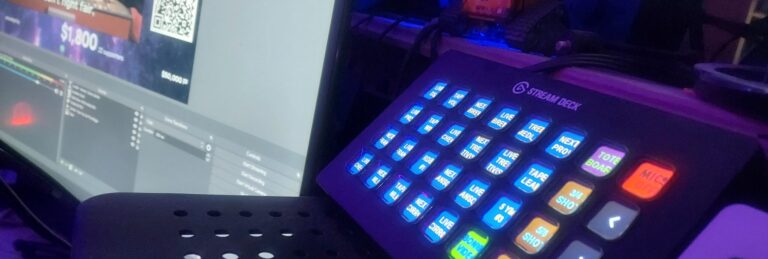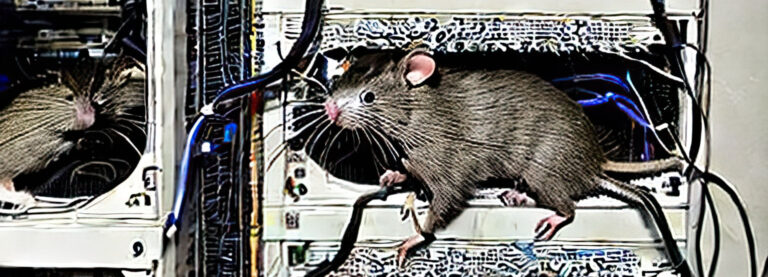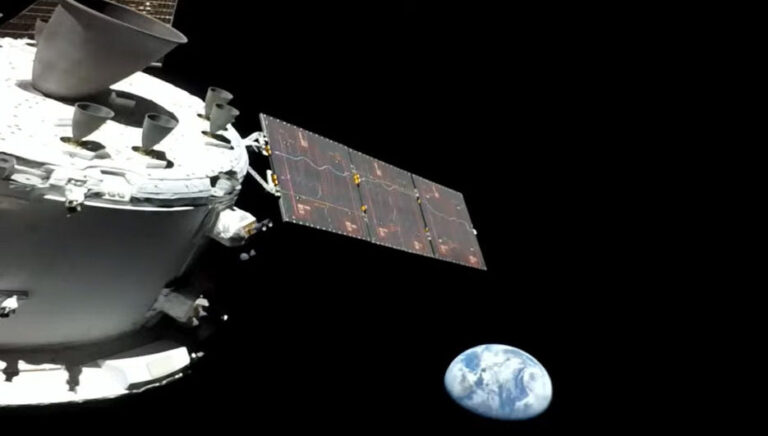Permission To Disembark
Normally, I keep Scribblings From The Public Restroom Stalls Of The Gods free of any discussion of science fiction, because there’s plenty of that on the rest of the site. There are, admittedly, a few cringe-worthy examples of my own stabs at sci-fi on the menu there, proof, if any be needed, that I have absolutely no business dabbling in fiction. (I’m sure that whichever unfortunate intern wound up reading my one and only spec script submission for Star Trek: The Next Generation would back me up there.) But with the news of the cancellation of Star Trek: Enterprise still fairly fresh, I have to say something that I’m just not sure would fit as a news page editorial, because it’s not really about Star Trek, it’s about the role that the various spinoffs of Star Trek played in my adolescent and adult life.
In the summer of 1987, without trying to throw too much of a pity party for myself, I was a very shattered, very fucked-up kid. My mother had died in March of that year, and the seismic aftershocks of that event proved pretty quickly that she had been the glue that held the whole family together. I wound up with a lot of time on my hands, and while I had some very good friends (like Robert Heyman, my partner in home movie-making crime, and still occasional contributor to this site to this day) who looked after me, there was a certain amount of distance between myself and most of my peers. And looking back, I realize that it was me who put that distance there as much as anybody.
I’m going to make a bold, and perhaps anti-climactic statement that, in September of that year, Star Trek: The Next Generation saved my life.
At the loose end that I was dangling from at that moment, I could’ve gone in many different directions. I had a strong aversion to smoking, because that had killed my mother. But I had yet to form some of my other long-standing beliefs about what I would and would not do, and my immediate family wasn’t exactly acting as a safety cushion at the time. To boil it down, I could’ve wound up getting into some really bad shit.
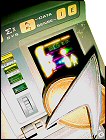 But something came along and interested me enough to completely engulf my life. And yeah, I was enough of a geek about it that I wore a combadge pin – my first piece of Next Generation merchandise, which I still have and cherish to this day – to school. Just about every day. I’m sure no one knew what to make of it. But it meant I was involved in something, something that tickled and teased just about every facet of my imagination and my creative ability. Margins of notebook paper filled with Okudagrams (the backlit computer displays seen on just about every Federation ship in the show), or crude 3-D renderings of ships or sets, or what have you. It was about the same as scribbling the logo of your favorite band on a notebook cover, only this was seriously lacking “cool” cred.
But something came along and interested me enough to completely engulf my life. And yeah, I was enough of a geek about it that I wore a combadge pin – my first piece of Next Generation merchandise, which I still have and cherish to this day – to school. Just about every day. I’m sure no one knew what to make of it. But it meant I was involved in something, something that tickled and teased just about every facet of my imagination and my creative ability. Margins of notebook paper filled with Okudagrams (the backlit computer displays seen on just about every Federation ship in the show), or crude 3-D renderings of ships or sets, or what have you. It was about the same as scribbling the logo of your favorite band on a notebook cover, only this was seriously lacking “cool” cred.
And I wouldn’t go back and do it any differently.
Sometime in 1991, out of high school but still in college, Robert and I began obsessing over Mark A. Altman’s Cinefantastique Magazine mega-features on the latest season of the show, and extensive coverage of how it was all put together – especially the writing. We were both bound and determined to be the next Ronald D. Moore, who at the time was the Cinderella story of the Star Trek franchise: a diehard original series fan who submitted an unagented script on a whim, sold it to Paramount, and wound up pitching more stories until he became the show’s story editor. We marveled at the accounts of the creative juices flowing in the writing room in the Hart Building.
And it hit us that This Was What We Wanted To Do.
It took a while to make it happen, though. It took me 13 months finish off a script for a proposed episode called Mortal Pangs that would’ve brought back Commander Riker’s father and – until I sensed from some of these behind the scenes articles that Diana Muldaur was very much a persona non grata – the second season’s dreaded Dr. Pulaski (in a story that, looking back, now reeks of a more-blatant-than-Freud-could’ve-handled attempt for me to work through my own feelings about my father remarrying). By the time I had finished polishing my spec script, however, I was ready to, as the captain of a previous Enterprise once put it, move out of my parents’ house and get a life. I was disappointed, but not surprised, to see the script come back to me with a rejection stamp on it in what seemed to be an unbelievably short turnaround. In retrospect, I can see why. I’m still very fond of the story premise, but my immense inexperience was on display – complete with Arkansas vernacular that I simply wasn’t experienced enough to recognize as a regionalism. (I’m pretty sure that, at one point, I had Riker saying that engineering was fixing to get some system or other back on line. Yee-haw, Commander sir!)
According to the release form that one had to fill out in order to submit a speculative script without an agent, you had only two shots at it. I worked up about half a dozen Deep Space Nine ideas. And never sent any of them in. I wasn’t sure that I had that Next Big Idea – and Deep Space Nine was so incredibly well-written most of the time, I’d be lying if I said I wasn’t experiencing pangs of inadequacy.
But I did wind up writing for a living. For television. Granted, on a very small scale and in a small market, but so fascinated was I with this marriage of sound and picture, truth and illusion, and words and ideas and images, that I pursued it, whether it led me to the final frontier or not. I’m still doing it today.
I’ve long maintained that the major course corrections that guided my life were down to George Lucas and Toru Iwitani (the creator of Pac-Man). But that’s a bit disingenuous. As an adult, I need to add Douglas Adams, Harlan Ellison, and J. Michael Straczynski to that list.
And I need to add the names of everyone who had anything to do with the making of Star Trek: The Next Generation and its descendants. All those people whose exploits I read about every summer in Cinefantastique or Starlog or Starlog’s various magazines devoted to each individual Star Trek series. All those people who gave me a reason to stay home on Saturday nights and stay out of trouble. All those people whose amazing works of imagination inspired me to scribble stuff in notebook margins, to make goofy-ass home movie spoofs, and to write a really bad spec script which I’m sure some intern is still undergoing therapy to forget.
One time, I read an interview with Brannon Braga where he was talking about the spec writer pitch process, and the endless parade of unsolicited scripts. I can’t remember what publication or even what year this was, except that it was toward the end of Next Generation’s stint on the air. And he said – and this is more of a paraphrase than anything – “we’d get spec scripts from really strange places, like Arkansas.”
Hey, it was the least I could do to pay you guys back for saving my life.
Tune in next month for some Mortal Pangs – after all, there’s no reason for some Writers’ Guild West intern to have a monopoly on that deep and enduring pain, is there?… Read more

